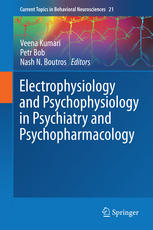

Most ebook files are in PDF format, so you can easily read them using various software such as Foxit Reader or directly on the Google Chrome browser.
Some ebook files are released by publishers in other formats such as .awz, .mobi, .epub, .fb2, etc. You may need to install specific software to read these formats on mobile/PC, such as Calibre.
Please read the tutorial at this link: https://ebookbell.com/faq
We offer FREE conversion to the popular formats you request; however, this may take some time. Therefore, right after payment, please email us, and we will try to provide the service as quickly as possible.
For some exceptional file formats or broken links (if any), please refrain from opening any disputes. Instead, email us first, and we will try to assist within a maximum of 6 hours.
EbookBell Team

0.0
0 reviewsPsychophysiology is an ever expanding field. The application of psychophysiological investigations to psychiatric disorders is likewise expanding and has in fact shed much light on some of the neural processes contributing to the development of psychiatric symptoms and/or their amelioration following treatment. In the first part of this volume, we have selected a number of conditions where psychophysiological investigations have recently provided some insight into the pathophysiology of a particular manifestation (e.g., dissociation) or a disorder. Although this volume has a main focus on electrophysiological investigative modalities where neuroimaging was complimentary this added insight was included. The second part of the volume focuses on novel uses of psychophysiological measures, combining it with neuropsychology and imaging where possible, in the context of neuropsychiatric research and describes advanced analytical tools. Both basic and clinical investigators in this field should find the reviews and interpretations provided clear and informative. Clinicians will find this volume easy to assimilate. While direct clinical applications may be down the road, the insights provided should help the practicing clinicians to have firmer understanding of the complexity of the disorder they manage in everyday practice.